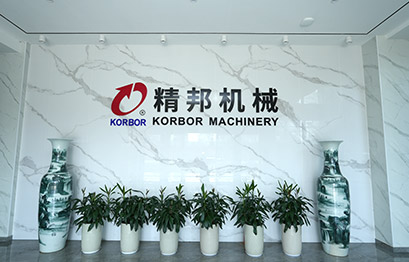In the process of producing CHRYSLER Car Camshaft, what specific measures has KORBOR taken to reduce waste generation and protect the environment?
1. Raw material selection and use
Use environmentally friendly materials: KORBOR gives priority to the use of environmentally friendly, renewable or easily recyclable materials in the selection of raw materials, such as lightweight materials (carbon fiber, aluminum alloy, etc.), which not only help to reduce the weight of the camshaft, reduce fuel consumption and exhaust emissions, but also are easy to recycle and reuse, reducing the burden on the environment.
Optimize material utilization: Through precise calculation and optimized design, KORBOR ensures that raw materials are maximized during the production process and the generation of scraps and waste is reduced. The generated waste is sorted and recycled for reproduction or other purposes, realizing the recycling of resources.
2. Production process optimization
Efficient production process: KORBOR adopts advanced production processes and equipment, such as high-precision CNC machine tools, automated production lines, etc. These equipment not only improve the production efficiency of CHRYSLER Car Camshaft, but also reduce energy consumption and emissions during the production process. By optimizing the production process, unnecessary links and procedures are reduced, further reducing the generation of waste.
Clean production technology: In the production process, KORBOR widely applies clean production technology, such as using wet processing instead of dry processing to reduce dust and exhaust gas emissions; using environmentally friendly cutting fluids and coolants to reduce the emission of harmful substances; pre-treating and recycling production wastewater to reduce wastewater emissions.
3. Waste gas and wastewater treatment
Waste gas treatment: KORBOR has built a complete waste gas treatment system to collect, purify and treat waste gas generated during the production process. Advanced waste gas treatment equipment such as incinerators, adsorbent filters, and biological treatment pools are used to ensure that waste gas emissions meet national environmental protection standards.
Wastewater treatment: For wastewater generated during the production process, KORBOR uses physical, chemical and biological treatment methods for purification. Through deep filtration, sedimentation tanks, chemical reactors, biological filters and other processes, harmful substances in wastewater are removed or converted into harmless substances to ensure that wastewater discharge meets environmental protection requirements.
4. Waste Classification and Recycling
Waste classification: KORBOR implements a strict waste classification system in the production process, and collects waste according to different materials, such as metal waste, plastic waste, waste cutting fluid, etc., for subsequent recycling and treatment.
Waste recycling and reuse: For recyclable waste, KORBOR has established a complete recycling system to send waste to professional recycling agencies for reuse. Encourage employees to participate in waste recycling activities to improve resource utilization.
5. Energy conservation and emission reduction and energy management
Energy conservation and emission reduction: KORBOR actively adopts energy conservation and emission reduction measures in the production process, such as using energy-saving equipment, optimizing production processes, and improving energy utilization efficiency. Promote the use of renewable energy, such as solar energy and wind energy, to reduce dependence on traditional energy.
Energy management: KORBOR has established a complete energy management system to monitor and manage energy consumption in the production process in real time. By formulating energy conservation and consumption reduction goals and plans, strengthening supervision and control in the process of energy use, and ensuring the rationality and effectiveness of energy consumption.
VI. Environmental Protection Promotion and Training
Environmental Protection Promotion: KORBOR actively carries out environmental protection promotion activities, and improves employees' environmental awareness and sense of responsibility through internal training, bulletin boards, brochures, etc. Employees are encouraged to participate in environmental protection public welfare activities and jointly create a green and environmentally friendly corporate culture.
Environmental Protection Training: KORBOR regularly conducts environmental protection training for employees, including training on environmental protection laws and regulations, environmental protection knowledge, environmental protection skills, etc. Through training, employees' environmental protection literacy and practical operation capabilities are improved to ensure the effective implementation of environmental protection measures.

 English
English 中文简体
中文简体 русский
русский Español
Español











